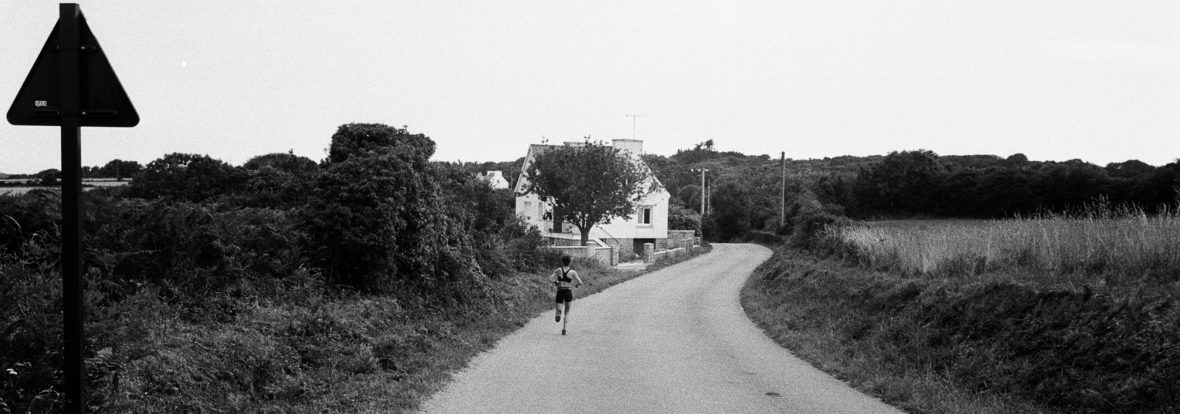The year she turned 60, my mother shared running wisdom with me. It was on the eve of the 2007 New York City Marathon, and she had a sore throat. Just like the nights before the 14 marathons she had run in the previous 12 years, she was somatizing high-level prerace anxieties.
“It doesn’t get better with age, you’ll see,’’ she said. “I have nothing to prove to myself or to others. There’s no pressure to perform tomorrow. And yet I somatize every single time, as if my life depended on it. It’s disheartening at my age.’’
After a pause, she added: “At least I don’t have a fever.’’
Aging is, for the most part, the enemy of running: Race times get slower, recovery times get longer. But being older also offers valuable experience: We’ve been through a marathon before and we’ve overcome the obstacles. We can go back to the moments when it hurt and remember that eventually, the pain stopped. We’ve acquired a capital of wisdom through racing and training in difficult conditions, which we can tap on demand when facing fresh obstacles.
That’s the theory. In practice, just like my mother, I am a novice again when I enter a race, whether a small, local 5k or a big international marathon.
This Sunday, I’ll be running the Philadelphia Marathon for the second year in a row, my 14th marathon in total. I decided to enter the 2017 race shortly after running the 2016 edition under challenging climatic conditions — strong winds and frigid temperatures. After suffering through the course last year, at times contemplating giving up, and finishing just 10 seconds under 3 hours, I decided to give it another try. I wanted a good experience in Philadelphia, my adopted hometown.
That was a year ago. Now it’s two days before the race, past mid-November on the U.S. East Coast: Temperatures are frigid in the morning, and the weather forecast has some rain overnight before race day with winds picking up. I don’t know what I was thinking.
Truncated Preparation
My preparation for the marathon has been truncated this year. It also lacked intermediary races, which are key gauges to assess speed levels during the months of preparation. In particular, I missed an important, competitive 15k race in October, which would have helped determine whether I should realistically attempt to run another marathon under 3 hours. After skipping that 15k race, I decided I shouldn’t.
For once, I would run without pressure and aim for 3h10 or 3h15 — still a decent time for a runner in her 40s. I’m a year older than last year, when I barely made it under 3 hours. Older means slower, I reasoned.
Because of the way races are structured, age may be eroding certain aspects of the competitive mind. After 40, we can compete for a first place in the Masters category. When I’m on the course, pushing hard and getting overtaken by a youngster in her 20s, it hurts. But it doesn’t hurt as much as seeing the back of a competitor in her 40s who will beat me to the finish. I can let the youngster go, but not the older one — at least not without a fight.
Yet, many older runners still compete as if their life depended on it, as my mother described it. It happens at all levels, not just the elite — even though champions show us that the competitive brain doesn’t age the way the body does.
Elite Runners
Meb Keflezghi, the American who won the 2014 Boston Marathon at age 39, ran his last competitive marathon before retirement in New York this month. Now 42, he finished 11th in 2h15.
“Today, my mind says, ‘Go,’” Keflezighi said in an post-race interview cited in Runner’s World. “My body says, ‘You can’t go.’”
Also running the New York Marathon was 42-year-old French champion Christelle Daunay, who finished 12th woman, in 2h32. Three years earlier, at 39, Daunay became the fastest — and oldest — European champion with her surprise win at the Zurich Marathon. In a 2009 interview after breaking the French marathon record in Paris, Daunay said that as she aged, her race objectives were getting shorter-term, two to three months ahead, no more.
In January, asked what’s next after finishing a 10k third behind a competitor 23 years younger, Daunay replied: “I want to finish this season before envisaging another one. One shouldn’t plan too far ahead.”
With my own objective now less than 48 hours ahead, the prerace jitters are about as bad as they ever were. Odd ailments appear suddenly in various parts of my body. My neck and back are throbbing with pain, a problem that usually goes away with running — not this week. There’s a nagging on-and-off pain in my right ankle.
After running a half-marathon three weeks ago in about the same pace as last year, and a fast 5k two weeks ago, I now find myself with no other choice than trying to run under 3 hours on Sunday.
My body says: “No, you’re older.” My rational mind says: “No, you haven’t trained enough to run that fast. You have no chance. You’ll hurt yourself. Relax.”
My brain says: “Go.”


One comment